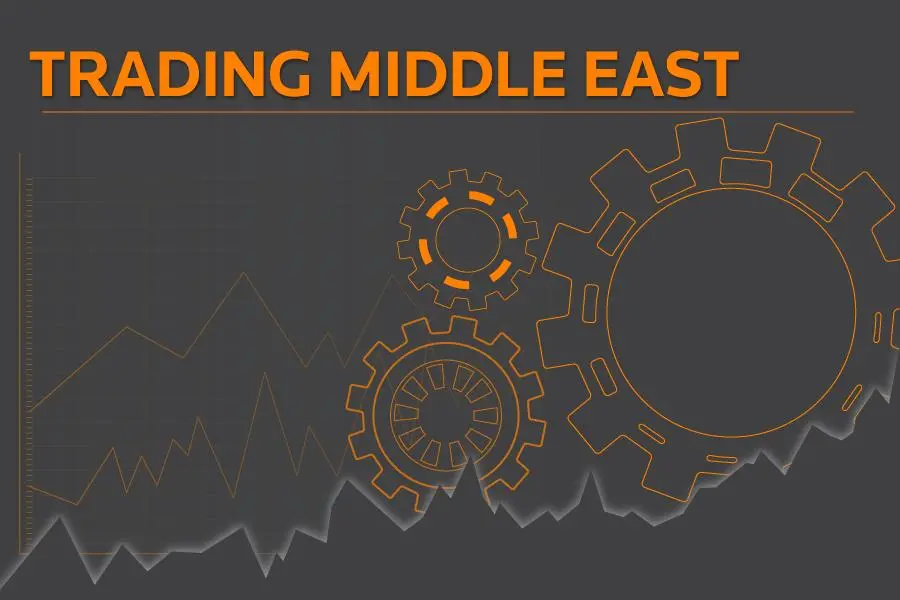PHOTO
FTSE Russell said late on Wednesday that it has added Saudi Arabia to its emerging market index, with the change taking effect on March 2019.
The decision is expected to attract billions of dollars of fresh foreign money to Saudi Arabia, in a boost to reforms launched by Crown Prince Mohammed bin Salman.
On Wednesday, the Saudi index closed 0.5 percent lower before the FTSE decision was announced, on profit-taking after a week of gains.
Khaled Feda, senior research manager at Alistithmar Capital told Reuters that the picture remained fundamentally strong.
"The outlook is generally positive. The crown prince's visit to the U.S. and the expected inflow of foreign investment, as well as the global indexes inclusion -- all these factors boost the index," Feda told Reuters.
"There might be profit-taking over the coming few weeks, but as foreign investors come in to the market over the next 12 months, the index is expected to gradually increase and could hit the 9,000 point level."
Dubai’s index was 0.1 percent lower with Air Arabia dropping 2.5 percent to its lowest level since October. The Abu Dhabi index lost 1.3 percent with First Abu Dhabi Bank losing 3.0 percent and Abu Dhabi Commercial Bank falling 3.4 percent.
Qatar's index closed 1.6 percent lower, dragged down by a 3.1 percent loss by Industries Qatar and a 2.3 percent decline by Qatar National Bank.
Egypt's index closed 0.2 percent higher as real estate firm Palm Hills last traded up 15.8 percent to 5.13 Egyptian pounds. Citing a presidential decree this month that reclassified agricultural land along the Cairo-Alexandria Desert Road for urban communities, Pharos Research kept an "overweight" rating on the stock and raised its fair value estimate to 6.57 pounds.
Kuwait’s index was 0.2 percent lower, Bahrain’s index dropped 0.9 percent, while Oman’s index rose 0.3 percent.
In international markets, Asian shares traded lower on Thursday, tracking a fall on Wall Street, where the index has been dragged down by technology stocks.
MSCI’s broadest index of Asia-Pacific shares outside Japan was 0.2 percent lower.
“Fears of a global trade war have eased, although concerns still linger about the U.S. technology sector,” Masahiro Ichikawa, senior strategist at Sumitomo Mitsui Asset Management in Tokyo told Reuters.
“But equities in Asia will receive support from an easing of tensions regarding North Korea, with countries like Japan seeking a summit,” Ichikawa added.
In commodities, oil prices rose early on Thursday after positive comments made by OPEC’s secretary general on Wednesday, saying that OPEC and non-OPEC countries are looking at a "very long-term" cooperation.
U.S. WTI crude futures were at $64.57 a barrel at 0242 GMT, up 19 cents, or 0.2 percent, from their previous settlement.
Brent crude futures were at $69.72 per barrel, up 19 cents, or 0.3 percent.
In currencies, the dollar held firm against the yen on Thursday after the greenback added 1.4 percent on Wednesday. The dollar was last trading at 106.82 yen.
Against a basket of six major currencies, the dollar was at 89.987 after reaching a one-week high of 90.147.
Gold prices dropped on Wednesday on a stronger dollar, but recovered some lost ground early on Thursday.
Spot gold was up 0.2 percent at $1,327.72 per ounce at 0419 GMT.
For access to market moving insight, subscribe to the Trading Middle East newsletter by clicking here
Our Standards: The Thomson Reuters Trust Principles
Disclaimer: This article is provided for informational purposes only. The content does not provide tax, legal or investment advice or opinion regarding the suitability, value or profitability of any particular security, portfolio or investment strategy. Read our full disclaimer policy here.
© ZAWYA 2018




















